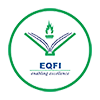Some of our key teacher training modules include:
With the paradigm shift in the approach of assessment towards assessment for learning, there has been an increased focus on ensuring that assessment results must feed into further progress of students’ achievements. Student achievement data offers invaluable support for making good decisions about instruction but how that data is utilized is crucial. The training will help in making data a routine part of teaching-learning processes, as an on-going support for instructional improvement. The training will provide hands-on tasks where teachers will be able to reflect on diverse areas of student data (apart from just academic results), and enter the data digitally and analyze it from a statistical point of view. They will also be guided to study the data and understand the pattern of learning through it.
The United Nations on 25th September, 2015 passed a resolution to adopt the development agenda of “Transforming our world: the 2030 Agenda for Sustainable Development”. The agenda is an action plan towards mobilizing the citizens of the world in a global partnership towards bridging disparity, bringing awareness, building accountability and affirming empowerment of every fellow being across the social, economic and environmental realm for a brighter and a more sustainable future. This is the same approach that we must adopt in school curriculum where children and the youth get an opportunity to learn and develop insights into issues around the world. The training will help the school and the teachers to create a learning scenario where students are active participants in the local and global community.
Learner Management
This will help teachers in devising strategies to address different learning styles of their students and also of their interests and needs so that they are able to address all the areas that require attention. The training will help guide teachers towards inculcating the practice of reflecting on one’s own experiences and teaching techniques. Teachers will be able to reflect and be aware of their own actions (activities undertaken) and of the results of those activities presented to the students, in the form of student behaviour and ways of reasoning.
Resource Management
Teachers must be given access to resources that are available for discretionary use in order to support improved learning and raise student achievement. The training will focus on supporting the school to put in place the integral pre-requisites towards the actualization of the educational goal and objectives with adequate provision of resources, maximum utilization and appropriate management of educational resources to avoid wastages and improve the quality of the teaching-learning process in the academic environment.
Transaction of learning materials
Teachers must be exposed to varied teaching methods to meet instructional objectives and effectively communicate ideas and skills to the students. There is a move towards problem-based learning as a solution to producing learners who are creative and can think critically, analytically, and solve problems. Problem-based learning is seen as an innovative measure to encourage students to learn how to learn via real-life scenarios. Making content meaningful and relevant to the lives of students is the need of the hour. The training will support teachers in understanding the fundamental approach of diverse pedagogical aspects and they will also get an opportunity to undertake hands-on tasks to understand whether such approaches are viable in their scenario or not.
In this globally and digitally interconnected world, all learners require the essential 21st century skills to succeed. It is highly recommended that the school provides exposure to teachers through trainings, webinars, social media and related events, in order to ensure effective incorporation of the 4Cs in the teaching-learning processes. Students should have the opportunities to develop the attitudes, skills and knowledge to understand and participate in a globally connected world as informed and aware learners. The training will help teachers prepare their lesson plans and design their activities structured around the core 21st century skills.
Professional culture
School leaders who want a culture of high expectations and trust for their school need to devote time towards building a unified purpose, visualization of the purpose in action, reinforcement of accountability and recognition by keeping the staff together as a collaborative unit. Building a culture of excellence is a gradual process and it needs to be a part of the continuous improvement efforts on a regular basis. The training will help in addressing the culture-building process and support the school in including all the members (old and new) in this exercise.
Creating sustainable parent teacher relationships
Positive parent-school communication benefits not only in raising the academic achievement but also in building a culture of trust and mutual respect within the institution and among the varied stakeholders. The manner in which teachers communicate and interact with parents affects the extent and quality of involvement on the part of parents with their children's learning experience. Similarly, with parents’ support, teachers can understand the level of achievement of their students, also their challenges, subsequently building on strategies of success. The training will help guide the school in devising strategies to maximize engagement of parents in school activities, thereby building collective accountability to ensure quality education.
